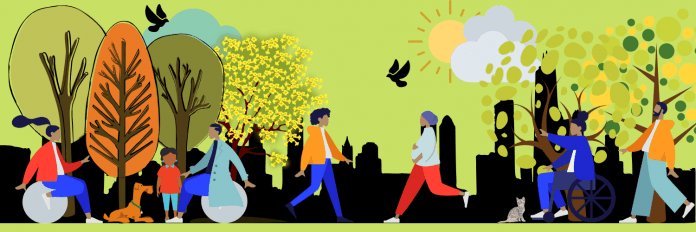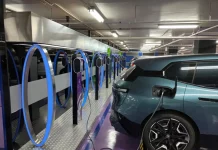By Lainie Yeoh, Editor of ThinkCity’s publication, The Citymaker
Launched at the start of 2020, The Curio-city Collective podcast will deliver two engaging episodes every month on the well-being in cities across India. The topics will range from sustainable city design and planning, to waste management, and even play. We had a conversation with the three Founders, Arpita Joshi, Deepika Khatri, and Srinidhi Raghavan.
Can you introduce our readers to your podcast, and the people behind it?
The podcast is an extension of our NGO The Curio-city Collective, which works on the wellbeing in Indian cities. We live in complicated times, where in India, many are experiencing how our cities are growing at a breathless pace, faced with challenges which often leave us feeling overwhelmed and disempowered. As city-dwellers, we started TCC to pull together ways urban dwellers can re-engage and contribute to the narratives shaping our cities, and change these dynamics. We are three women, who have been working in the development sector for more than a decade. TCC is the outcome of wanting to build a more positive democratic citizen and community-driven conversation around cities that we’ve grown up and lived in.
I find it interesting that you are looking at cities so personally – through the internal realities of its inhabitants.
We often personify cities and recognise specific characteristics which make them unique by using phrases like ‘Amchi Mumbai’ (My Mumbai) to own them. In ways that we embody it, live within it, find community and familiarity within the landscape — a city space is deeply personal. Yet, its vastness, structure, and how life is navigated within it can make a city feel impersonal and distant.
It is this distance we want to bridge. How can a city begin to feel more like a community, a collectively shared space where we feel seen and cared for? It seemed that the best way to explore that question is through the voices, conundrums and actions of people who live in these cities!
How do you choose what to focus on within your podcast?
Our primary approach is through the lens of holistic wellbeing in cities. We created a framework inspired by global conversations looking at new ways of understanding development in cities and nations, beyond the lopsided idea of the Gross Domestic Product (GDP).
We undertook a survey asking people what they found inspiring and despairing about the cities they lived in. It was a revelation for us to see the range of topics, and based on this, began carving our episodes in these fields.
What is your vision of a city that functions with holistic wellbeing?
Holistic wellbeing for individuals and communities is an outcome of complex intertwined issues. Loneliness can be driven by many reasons. The psychosocial approach tells us it can be biological, even as it can be driven by social circumstances of poverty or marginalisation. Cities can be built to nurture connection. Hence, improving a city’s wellbeing quotient needs to be multi-faceted to respond to a variety of needs.
Our framework mirrors this complexity covering three dimensions which we felt are central to building a city space that fosters the wellbeing of its citizens: improving local conditions such as access to basic resources that allow people to realise their capabilities; sustainability and resilience to ensure that we live within the means of the planet and are fair to its other inhabitants and our future generations; and, democratic values which include constitutionally enshrined values of accessing equality, justice and such. A city that feels like home is a city that makes us and seen, heard and cared for.
What can be done within the larger environment to reduce emotional distress in the first place?
In our survey on loneliness in Indian cities, we asked, ‘What are the ways in which cities can be made to foster connection?’ We got a wide variety of responses on ways to rethink connection in cities, including suggestions for support groups, helplines, communities built around shared interests, safe green public spaces, and rethinking work and commute. These ideas are also being explored by progressive urban architects, planners etc! This tells us that engagement with people inhabiting city spaces is paramount to co-creating solutions that work for a city. Urban planners and decision-makers need to do a lot more of this.
What are some of the topics that Curio-city will cover in future podcasts?
We will be covering the issue of waste accumulation in cities through our four-part series ‘Trash Talk’. Huge piles of garbage have become ubiquitous in our cities, and municipalities are battling growing volumes of waste. We wanted to speak from the perspective of citizen action and engagement. We explore what waste dumping is doing to our oceans and cities, alongside how individuals and groups address this issue through personal and collective action. We’ll also be speaking on ways of making cities more sustainable and liveable through varied practices in architecture and design, what it is to ‘play’ in the city and much more!
To listen to Curio-city Collective’s podcast, head towards thecuriocitycollective.org.









